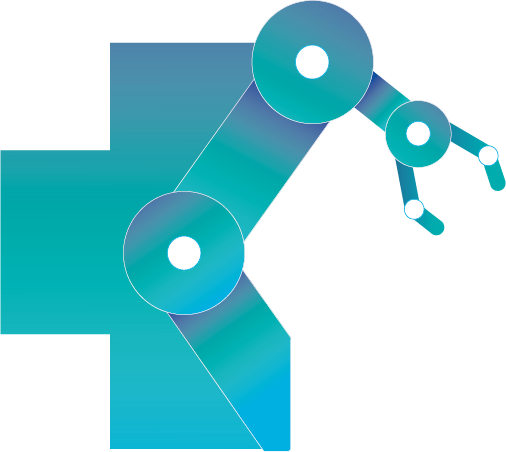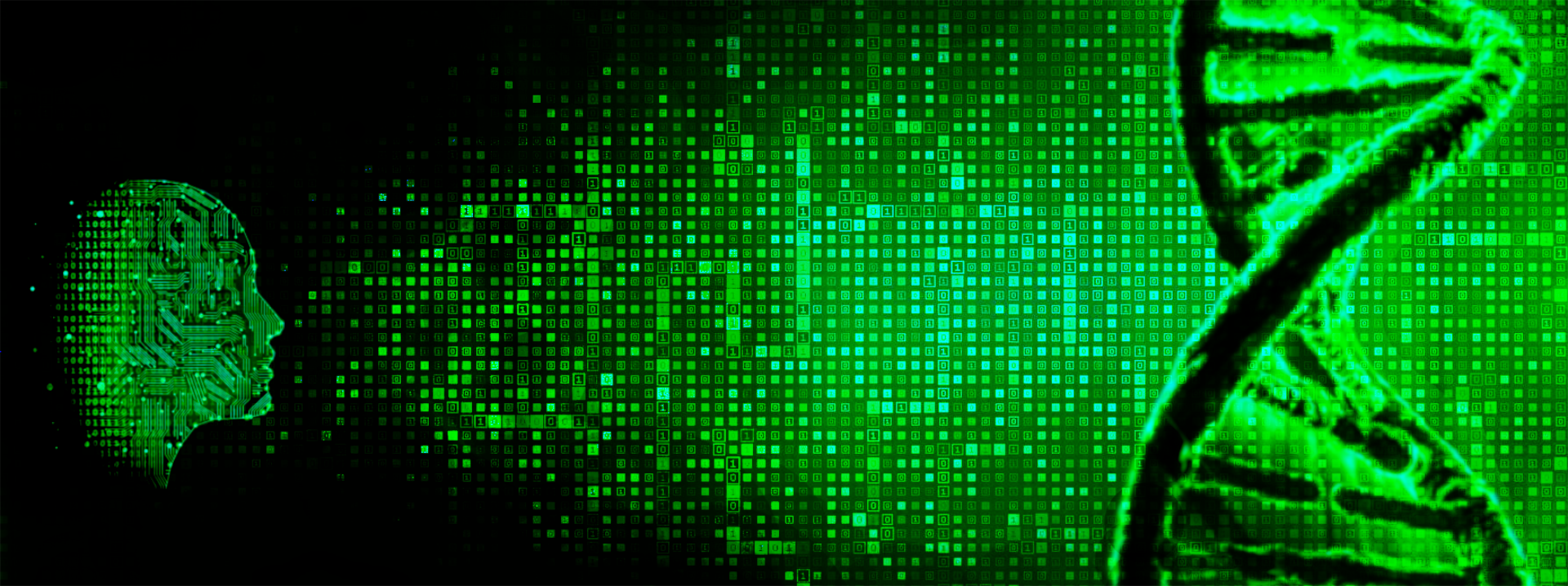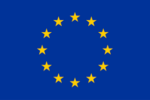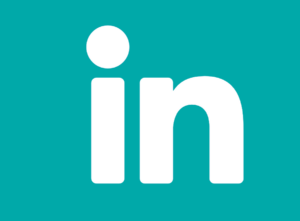Prognosis of cancer patients and their response to treatment combining multi-omics data
Accurate diagnosis of glioma, a type of rare brain cancer, relies on Tumor segmentation and characterization of Tumor infiltration, subtype, grade, and relevant mutations. Currently, image and genetic data are analysed separately, missing out on the potential benefits of their combined use for strategizing the treatment.
Our proposed solution is to establish a digital health research platform that collects and integrates hospital data for glioma, ensuring compliance with security, GDPR, and patient legislation. This platform will provide researchers with a comprehensive dataset to address glioma diagnosis and treatment challenges. We will unlock the hospital data by combining imaging, genetic, clinical, and pathology data. Researchers can collaborate, collectively analyse the data, and gain insights to develop personalized treatment strategies. This platform will drive data-driven discoveries and advancements in glioma research, benefiting patient outcomes.
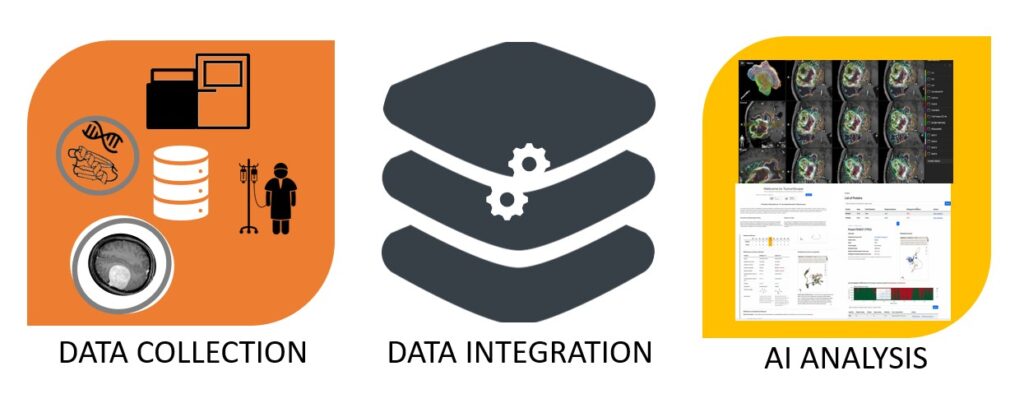
Digital Health Research Platform
Our proposed digital health research platform will have several key components to address the challenges in glioma diagnosis and treatment:
- Data collection: The platform will securely store and analyse pseudonymized medical data, including both imaging and genetic data. This will allow researchers to study the clinical behaviour of tumors and their response to various therapies while ensuring patient privacy and compliance with data protection regulations.
- AI-Based Tumor Image Segmentation: The platform will incorporate artificial intelligence algorithms for automated tumor image segmentation. The tool will enable Accurate, automatic segmentation of basic tumor sub-regions: edema, necrosis, and contrast-enhancing tumor.

Digital Health Research Platform
- AI-Based Driver/Passenger Mutation Analysis: The genetic data within the platform will be used for AI-based analysis to identify driver and passenger mutations which are done manually at the moment in the hospital. By leveraging machine learning and data mining techniques, the genetic analysis tool will help identify the mutations that contribute to tumor development and progression.
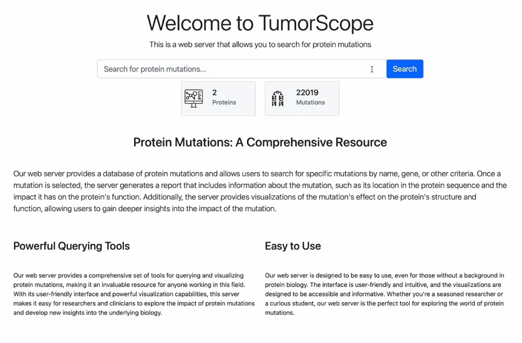
Screenshot of the genetic tool
- Radiomics: It involves the extraction of a large number of quantitative features from medical images, to perform AI-based analysis of integrated genetic and image data. This will enable the identification of imaging biomarkers and the correlation of genetic and imaging characteristics, providing valuable insights into glioma subtypes, grades, and treatment responses.
- Interpretation of Predictions: This will support physicians and researchers in understanding the basis for the predictions and aid in their decision-making process.
By incorporating these components, the digital health research platform will facilitate comprehensive analysis and interpretation of integrated genetic and image data, empowering researchers to enhance glioma diagnosis, treatment planning, and prognosis.
Project page: https://tumorscope.be/
